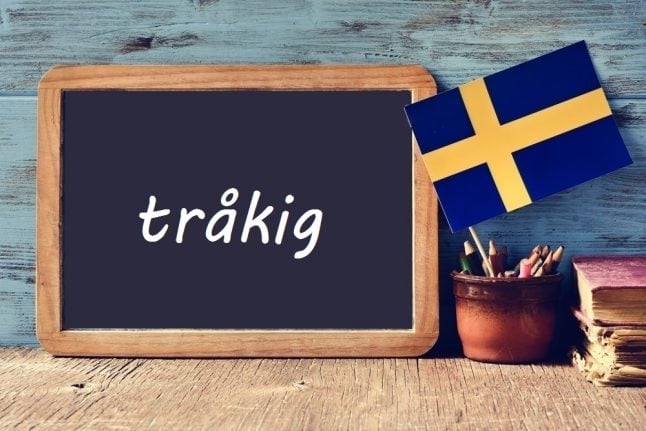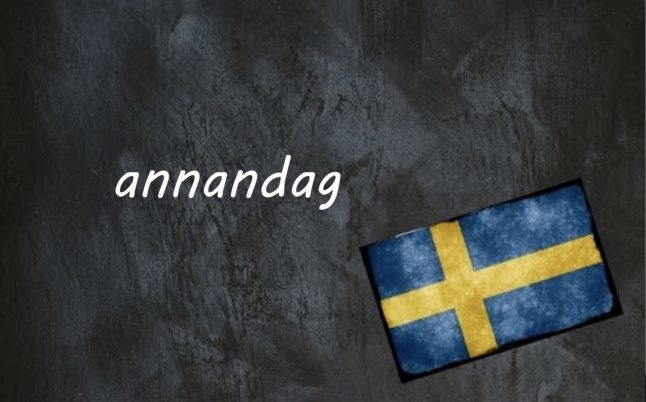Tråkig usually appears in dictionaries as the Swedish equivalent of ‘boring’ or 'dull', but it’s not always easy to translate directly. Hear how it's pronounced in the audio clip below:
Tråkig is more versatile than English ‘boring’, and is often used generally to describe something bad, sad, unpleasant, or annoying.
For example, if your bike is stolen or you injure yourself, a Swede might say Oj, vad tråkigt! They’re not telling you that your bad luck is boring them; it’s a sympathetic expression, which in English we might translate as ‘oh no, how annoying/sad’ or ‘oh, what a pain’.
This is especially true in the expression tråkigt nog, which means ‘sadly’, as in: Tråkigt nog finns det många exemplar av ojämställdhet i världen (sadly, there are many examples of inequality in the world).
But in other situations, tråkig can be ambiguous. For example, if you share an anecdote with Swedish friends and they reply 'det var en tråkig historia' (that was a sad/boring story), you'll need to rely on other clues such as their tone and the general context to work out what they mean. If you want to be clear that you mean 'boring/tedious', you can use the word långtråkig, a more emphatic form of tråkig.
Tråkig comes from an old Swedish verb, tråka, which originally meant ‘to push together/to clamp’ and is related to the words trycka (to push) and tryck (pressure) in today’s Swedish.
Over time, the meaning of this word developed from referring to physical pushing to metaphorical pushing, in the sense of going over and over the same point. From there, it soon came to mean 'to walk/move slowly' and was also used to mean 'to work slowly'.
Today, the verb tråka is still used, but usually combined with the preposition ut to mean ‘to bore’, for example: jag ska inte tråka ut dig med alla detaljerna (I won’t bore you with all the details).
Examples
Vi läser en mördande tråkig bok i skolan
We're reading a deathly boring book at school
Det var tråkigt att höra att din hund är forsvunnen
It was sad (note: not boring!) to hear that your dog's gone missing



 Please whitelist us to continue reading.
Please whitelist us to continue reading.
Member comments